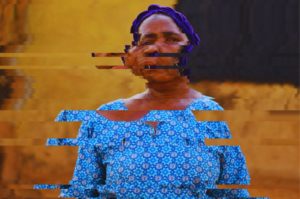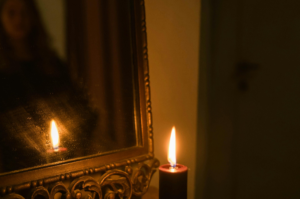
It was 20 minutes to the end of his shift and a lively group walked into the hotel bar. He had learned to recognise the type that would be troublesome and it looked like it would be one of those nights.
“Sipho…” he didn’t register the voice whispering in his direction. “Sipho!” they called out a little louder and he turned around.
“It’s Siphiwo, ma’am,” he responded when he realised the new manager was referring to him.
“Are you sure?” she asked with a confused expression. He paused for a moment looking puzzled at her. Before he could speak, she giggled nervously. “Hehe of course you’re sure. Uhm Si…”
“Si-phi-wo.” Of course, I enunciated it for her.
“Ye-es,” she nodded uncomfortably.
“Well listen, I know your shift is almost over, but we just got a table of important guests and you’re the best we have so I don’t want to chance it with the other guys. It’s a group of 12 so you’re guaranteed a nice table commission, would you mind?” He figured this is how it would go because this is how it always went. Barely any overtime pay and sometimes transport assistance if management was in a good mood. What irritated him the most, though, was how they always asked as if he had the choice to say no. He hated the phrases ‘Could you do me a favour’ and ‘Do you mind’ because they were never actually questions, just thinly veiled instructions under the guise of consideration. In reality, if he ever did say no, he would be called difficult and probably fired.
He had been looking out at the ocean, his favourite thing about working in Sea Point – the Cape Town sunset never disappoints. You would think after a while one would get tired of the pinks and purples and deep orange hues of the sky, but he never did. Every Wednesday and Friday he worked on the outside deck and often got lost in the dying light turning into the cool night. Boisterous laughter coming from the new table broke his fixation. He could hear European accents chattering about their enjoyment of the city and how ‘nice’ everywhere had surprisingly been. The group was a bit older, so he knew to prepare himself to perform extra ‘niceness’ and neatness with his usual service. The managers liked to trot him out and boast about his world-class Sommelier certification and the richness of South African wines available ONLY in the Western Cape. He would stand there, smiling and nodding in his starched white shirt and tailored pinstripe waistcoat – as a good house boy should.
In fact, he had heard about the training opportunity on the radio while in a taxi out job hunting. They said it was free, and all he had to bring was his ID, matric certificate, and show up on time to a building in the city. He had graduated from a technical college 2 years prior but still had no luck finding a job in that sector and was desperate for any sustainable income, so he went.
The group was quite demanding and already a little tipsy before their arrival – they repeatedly asked him many questions, quizzing him about what he knew of international wine varietals and challenging him on what the best food pairings for sophisticates like them were. He envied and despised them but smiled through it because he needed the commission and paltry compensation for his self-betrayal. For a man trained in the fine qualities of wine and how best to enjoy it, he never actually drank it outside of tastings for work and with insistent customers. He wondered how much longer he could do the job because the sight and smell of it had begun to disgust him – it had come to embody his oppression. Every time he poured it, swirling it elegantly in the glasses – watching the legs, taking in the different notes and holding the polished stemware in his rough hands. He wished it was poison so that he could drink it.
His working day finally ended after 10 hours on his feet of smiling and bowing to a revolving door of hotel guests and customers. He couldn’t fully relax until he was out on the street waiting to catch a taxi into town, but it was 15 minutes before he realised they had stopped running on the main road. He checked his phone, but the battery was dead. He thought of going back to charge it but what for? He had no one to call and there was no one worried or waiting for his return. The other wait staff disliked him because they thought he had airs about being certified and was frequently assigned the high-paying customers. He feigned ignorance and never tried to refute their suppositions, the idea that he thought he was better than them was ridiculous, but he knew engaging the tension would only make things more unpleasant for him. Every shift he arrived exactly 10 minutes early, checked the bookings and went about what was expected of him for his desired paycheck and nothing more.
His family lived in another province, and he had no close friends or relatives in the city. He was introverted and found women draining with their frivolous preoccupation with gossip, shopping and partying. “Let’s go out or at least buy some booze so we can drink and chill,” they’d always say when what they meant was ‘take me out to spend your money and look good for having snagged a man who spoils me’. He seemed to only ever meet one type of woman, the kind of woman he didn’t like so he had been single except for a few flings to get him through the hard times.
Loneliness is fleeting in the Spring and Summer; the whole world feels alive so hope is easy to come by but all that hope turns to bitterness when the leaves change and the Winter rains start. Even he had needs, ones he had tried hard to ignore but couldn’t, so he settled on controlling them instead. The urges of his flesh annoyed him, they forced him to be human in a way that felt embarrassingly vulnerable with people who didn’t care to recognise either his embarrassment or his vulnerability. So, he held loosely onto them as they clung tightly onto him – for body heat and the things horny and needy people do on rainy Sundays, and called a love life. But only until September. He was fond of the old lady he rented from and a few guys he’d met on the job search who he’d occasionally drink with but otherwise, he lived in a backroom in isolation. Sunup to sundown in peace – watching TV, listening to music and distracting himself from the troubles of the township around him.
He had no choice but to walk the 7 kilometres to the station terminal before the taxis to his area ended at midnight. He had to be careful because there’d been altercations with homeless people in the neighbourhood and in his all-black pants and oversized hoodie, he could be mistaken for a misfit. It was high tourist season, so the police were visibly patrolling with their piercing blue lights, looking lasciviously at women in their summer outfits and harassing loiterers. He couldn’t afford any misunderstandings that lead to fines or arrests, so he dodged the main roads and took the side streets. He was walking uphill feeling his sweaty and swollen feet in his worn-out shoes when he looked down and saw the crashing waves below and decided to head to the beach instead.
He skulked his way down towards Milton Beach, onto the jagged path leading out onto cement benches by a tidal pool that was swallowed by the sea at night. There he found an old man sitting quietly in the darkness – drinking out of a paper bag hidden in his tattered coat. They quietly acknowledged each other with a nod, privately understanding the despair of the other to have found themselves in that situation – together but completely worlds apart.
He sat out front where the waves lapped at him, his feet instantly soaked all the way through with the next wave higher and stronger than the one before it. The ebb and flow of the water were entrancing and soothing, washing away the troubles of his day as he squinted far out into the black horizon. In the distance he could hear the loud horn of a cargo ship, giving warning to clear a path for its passage or perhaps announcing its awaited arrival at the port. They moved slowly with their bright lights like fireflies across the dark sea and he wondered where they came from and where they were headed next. If he swam out to one, would it accept him? Would it carry him to his next life? Maybe by some stroke of luck or undeserved miracle, he could leave the endless cycle of his suffocating existence.
The waves crept closer to where he sat, moving from his legs to his waist and then to his chest – his hands pruning and hurting from gripping tightly onto the mossy rocks. It occurred to him how easy it would be to lose his balance and slip into the undertow, he looked behind him for the weary man with his hidden bottle, but he had left. He realised he was alone with the wide ocean before him, and it terrified and thrilled him. A sudden wave of emotion overtook him, and he began to weep, silently at first and then loudly and violently with the assurance that no one could hear him.
Maybe if things were completely hopeless, it would have been easier to accept, but it was the little daily hopes that killed him. The thought that maybe today will be different, today will be the breakthrough – so he’d make it to sunset and learn to worship the sunrise but what did that get him? More disappointment. An email with a job opportunity that turned out to be spam, a call from a familiar number that turned out to be an insurance salesman, hearing his name in a crowd when it was a call to someone else. Never him.
Themba uyaphilisa, themba uyabulala.
Hope heals. Hope Kills.
It’s not so much that he wanted to die as that he didn’t know how to continue living. The reasons everyone else seemed to live for felt meaningless and out of reach for him. The dead had no bills to pay, no frustrations to contend with, no past that kept chasing them, and no future to taunt them. It would be a relief to die. Then all the things that mattered wouldn’t matter anymore, and the things that didn’t maybe would.
The night is a safe haven for the despairing and brokenhearted, it consoles with its blanket of darkness that covers everything – a reprieve from the day when everything and everyone is bright but you. Before the night, we are all equal, subdued and subservient. A coward’s thought – that if I cannot be bright then it is better that none of us be bright, then I can sleep peacefully knowing I’m not the only one. Yes, failure is human but individual failure is unkind and unrelenting, there is solace in failing together – at least we all share a piece of the shame.
Maybe the ocean would accept him with open arms if he dared to run to it, but he feared he may not be brave enough to do that. So, he sat there contemplating other ways to die but it led him back to his frustration at having to make yet another decision about a life he didn’t ask for. It can all end tonight, he thought – wouldn’t that be lovely? He could be free in a matter of moments if he chose to, but he didn’t want it to be his choice – why couldn’t the heavens take pity on him and have fatal calamity befall him? Then he could die with sympathy and dignity instead of sadness and confusion. But the universe grants no such wish.
Photo by Jenna Beekhuis on Unsplash










Fanor June 24, 2023 03:31
Beautiful!